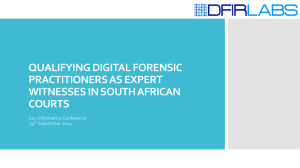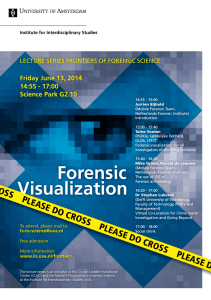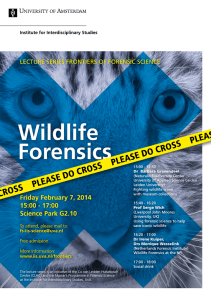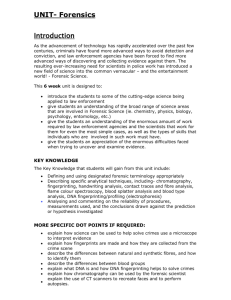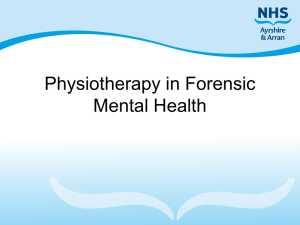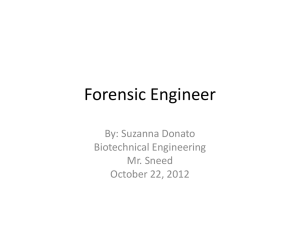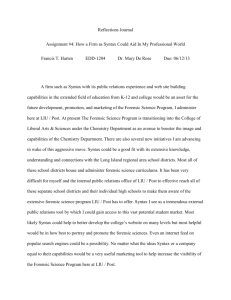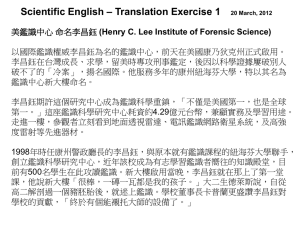BTEC Level 3 Certificate in Applied Science BTEC Level 3
advertisement
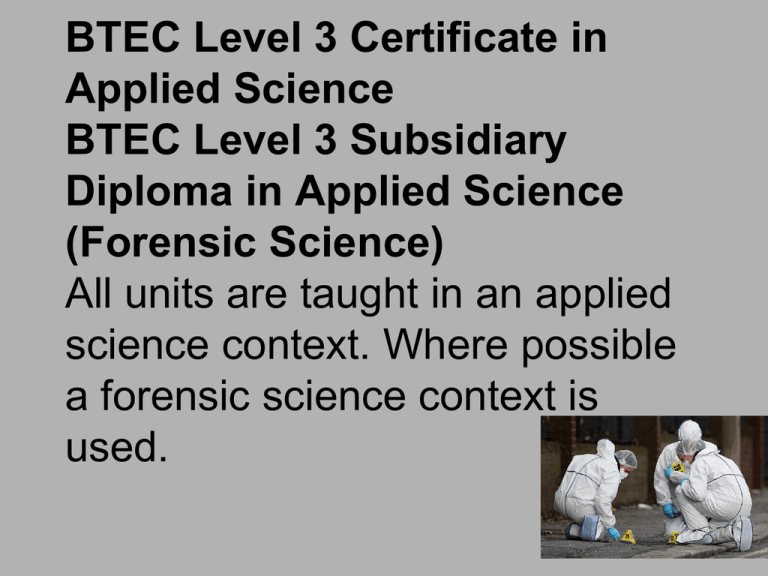
BTEC Level 3 Certificate in Applied Science BTEC Level 3 Subsidiary Diploma in Applied Science (Forensic Science) All units are taught in an applied science context. Where possible a forensic science context is used. Year 12 Applied Science • Unit 1 Fundamentals of Science • Unit 2 Working in the science industry • Unit 4 Scientific practical techniques Unit 1 Fundamentals of Science • You will learn about the fundamental concepts in biology, chemistry and physics. • You will also learn how scientists investigate and communicate. • You will learn how to measure chemical quantities and how to use a microscope to identify different body cell and tissues. You will also investigate energy transfers. Unit 2 – Working in the Science Industry • You will learn how to follow laboratory procedures and how to communicate in a scientific workplace. • You will research laboratory design, and design your own laboratory. • You will learn about data storage and safety in a scientific workplace. Unit 4 - Scientific Practical Techniques • You will learn the practical techniques needed to work in a laboratory setting. The techniques will involve chemical analysis, separation of substances and assessment of the purity of the substance. • You will also learn how to use scientific equipment and sensors Year 13 Forensic Science • Unit 5 Perceptions of science • Unit 32 – Forensic evidence collection and analysis • Plus one further unit will be completed from this list: -Using Science in the Workplace -Genetics and Genetic Engineering -Criminal Psychology -Criminology -Chemical Laboratory Techniques -Medical Physics Techniques Unit 5 – Perceptions of science • You will investigate how people, society and the media perceive and interact with forensic science. • You will learn how scientific theories are developed, and how politics, commerce and the media influences forensic science. • You will also investigate an ethical or moral issue in forensic science. Unit 32 – Forensic evidence collection and analysis • You will collect evidence from a fake crime scene. • You will use chemical, biological and physical practical techniques to analyse evidence from a crime scene. • You will also present your evidence as a court report. Year 13 Forensic Science • Plus one further unit will be completed from this list: -Using Science in the Workplace -Genetics and Genetic Engineering -Criminal Psychology -Criminology -Chemical Laboratory Techniques -Medical Physics Techniques Trips Progression • Direct employment -police assistant scene of crime officer / forensic scientist -science laboratory work • Further study - University study in Forensic Science, Criminal Psychology, Criminology - Science based courses eg nursing, vet nursing, applied science, dental nursing • South west has 5 police forces with 400 people employed in forensics • There are also independent / private forensics labs


